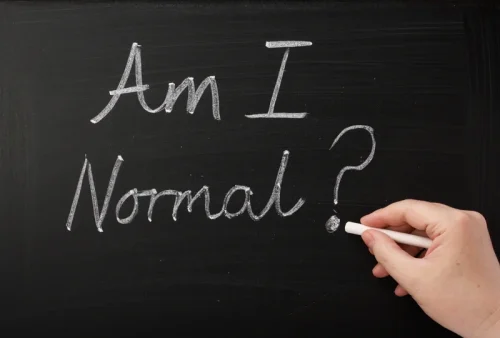
Together, these sets of assumptions cover the cognitive and behavioral aspects of CBT. Initially, some patients suggest that while they recognize that certain thoughts are not rational or healthy, simply becoming aware of these thoughts does not make it easy to alter them. Your therapist will encourage you to talk about your thoughts and feelings and what’s troubling you. In some cases, CBT is most effective when it’s combined with other treatments, such as antidepressants or other medications.

Structured cognitive behavioral training
- You have to submit this application to your health insurance company before therapy can begin.
- In your first few sessions, you and your therapist will likely talk about how long therapy might last.
- While there is no certification required for mental health professionals to administer CBT, getting a certification from the NACBT can bolster your understanding of CBT and inspire confidence in potential patients.
- CBT sessions are usually structured around specific goals and measurable outcomes, often consisting of 6 to 20 sessions conducted weekly or bi-weekly.
Where earlier behavior therapies had focused almost exclusively on associations, reinforcements, and punishments to modify behavior, the cognitive approach addresses how thoughts and feelings affect behaviors. Cognitive behavioral therapy may not cure your condition or make an unpleasant situation go away. But it can give you the power to cope with your situation in a healthy way and to feel better about yourself and your life.
- Psychodynamic therapy is often a longer-term approach to mental health treatment compared with CBT.
- Confronting these situations and observing the outcomes helps reduce anxiety and build coping confidence.
- Cognitive behavioral therapy (CBT) is an evidence-based and widely used form of psychotherapy that’s helped many people around the world.
- By targeting and restructuring the underlying core beliefs that fuel compulsive behaviors, ERP therapy offers a structured and supportive pathway for individuals to regain control over their lives.
Cognitive Therapy
If a patient thinks no one likes him, a therapist might ask what evidence he has for that conclusion. The patient might also be encouraged to collect more data, perhaps by asking some friends out for coffee. If even one takes him up on it, he can revise his assumptions about how others feel. This article will break down the clinical conditions that CBT addresses, how it helps those struggling with substance use disorders and other mental health conditions, and who this type of treatment might be right for.

Is CBT collaborative?

Relaxation exercises, stress-reducing and pain-relieving techniques are often used in cognitive behavioral therapy, too. One study showed that CBT is effective on certain disorders and continues to last after treatment. But results also show “room for improvement” for lasting effects of CBT especially for treating PTSD, seasonal affective disorder, and panic disorders. Many psychologists consider CBT the “first-line treatment” or gold standard for treating many mental disorders. CBT is considered an evidence-based approach because research supports its efficacy with many different types of disorders.
Results take time
For this reason, medication is sometimes used at first to relieve the worst symptoms so that psychological treatment can be started. CBT is among the most widely-utilized therapeutic approaches, so many people are able to locate a therapist in their area who practices it, but CBT has also been found to be effective when delivered online. There is no particular certification or license required to practice CBT, but clients are advised to look for a credentialed mental health professional with specialized training and experience in https://ecosoberhouse.com/. In addition to confirming these credentials, it is important to find a therapist with whom one feels comfortable, as CBT is a collaborative process and a strong therapeutic alliance is critical to its success. The creator of cognitive behavioral therapy is Aaron Beck, a psychiatrist at the University of Pennsylvania. But he came to realize that the approach was failing to treat his depressed patients—entrenched negative thoughts prevented them from overcoming the disorder.
As behavioral strategies were incorporated, the term cognitive therapy changed to cognitive behavior therapy. Today CBT is the most extensively researched of all psychotherapies with several evidence-based treatment protocols. In ERP, clients are encouraged to face their fears and discomfort, while learning healthier ways to respond, instead of relying on compulsions or avoidance. This process is closely tied to cognitive therapy, where identifying and challenging maladaptive thoughts is key to making lasting changes.
Informed Health Links

CBT helps you become aware of inaccurate or negative thinking so you can view challenging situations more clearly and respond to them in a more effective way. Finding a qualified CBT therapist is crucial for achieving successful outcomes. Many mental health professionals are trained in CBT, cognitive behavioral therapy and it’s important to choose a mental health professional who has experience and specialized training in this type of therapy. Working with a skilled CBT therapist helps individuals navigate their mental health journey, develop healthier thought patterns, and improve overall well-being.
What’s the principle behind CBT?
- They learn the influence that cognition has on their feelings, and they are taught to recognize, observe, and monitor their own thoughts.
- When a person is distressed or discouraged, his or her view of an experience may not be realistic.
- Then they test or challenge that prediction by engaging in the event or behavior that is causing anxiety.

